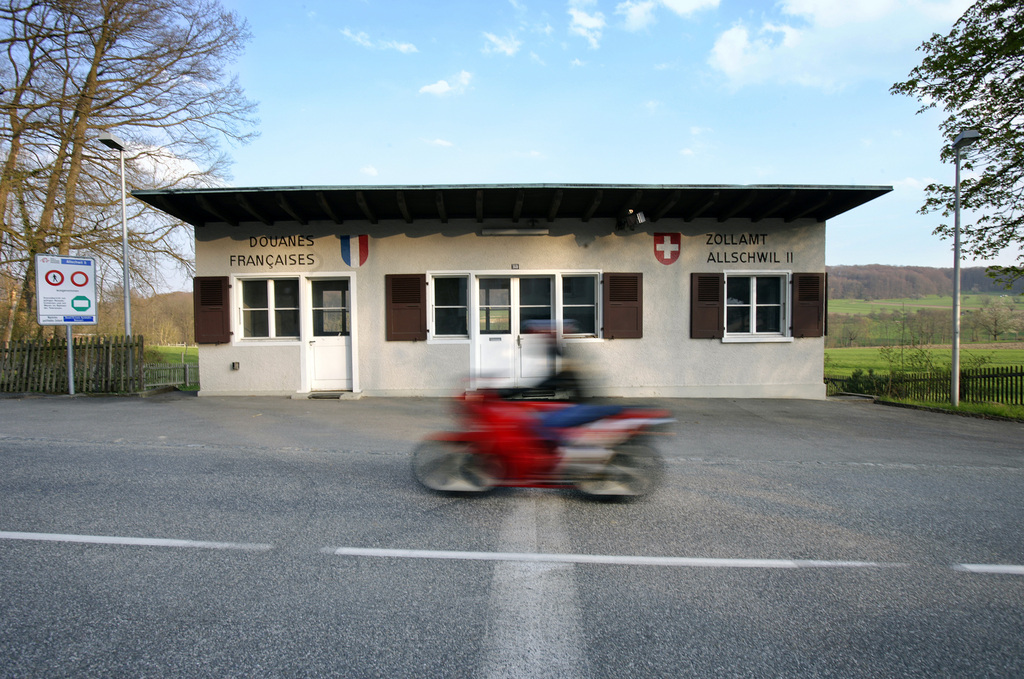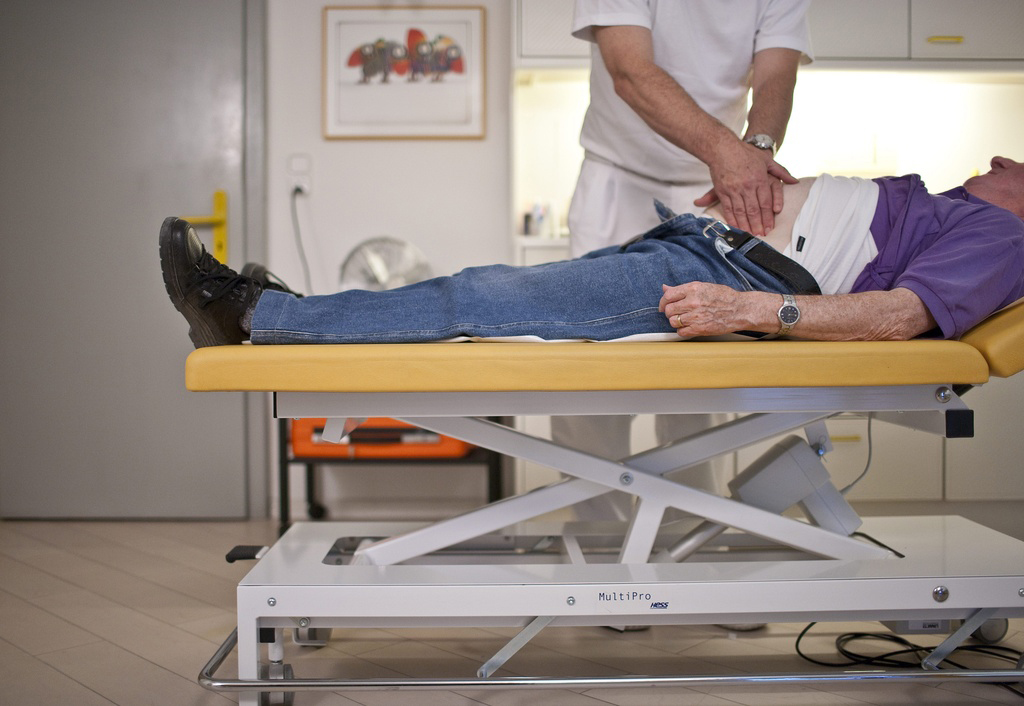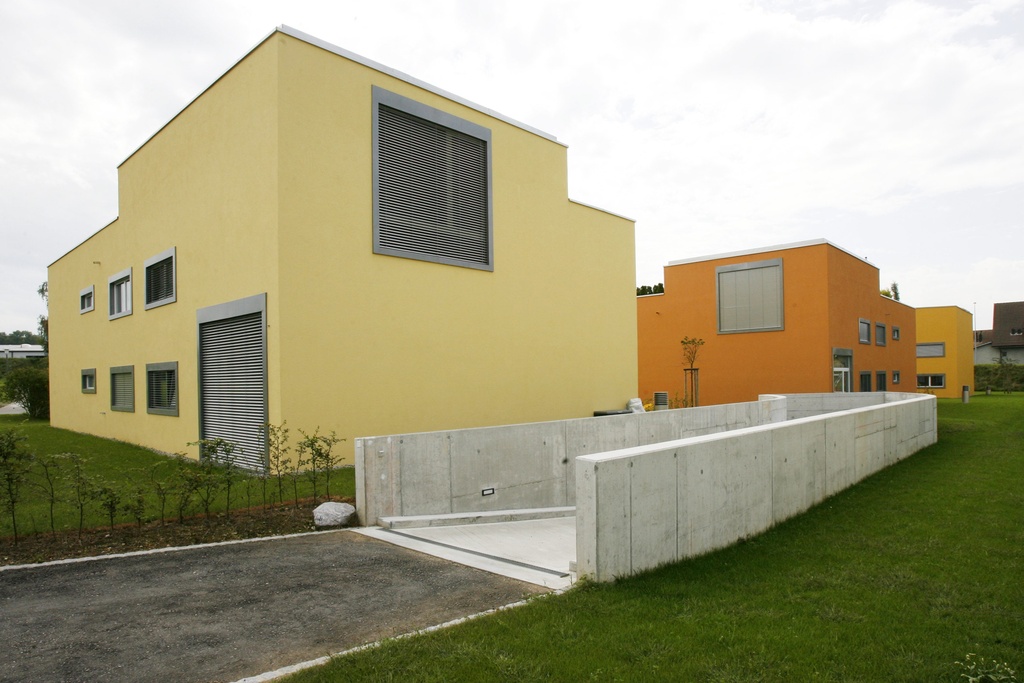Heading for triple No in June vote

None of the three issues to come to a nationwide vote on June 17 looks likely to win majorities at the ballot box. A proposal to promote so-called Managed Care systems appears set for a resounding defeat, according to a leading pollster.
Political scientist Claude Longchamp of the GfS Bern research institute is pessimistic about the prospects of the health vote. He says there is enough evidence from two series of interviews that voters will overwhelmingly reject a Managed Care scheme.
Support dropped by five per cent, while opposition increased markedly to 58 per cent, compared with a first poll at the beginning of May. (For detailed figures see graphic on the right.)
“The message in favour of Managed Care has not reached citizens, it seems. There are no majorities among the grassroots of any political party or in any language region of the country,” Longchamp explained.
He said it did not help that several parties changed sides during the campaign, which added to a general unease among the population. But Longchamp saw a more fundamental problem.
“Only one in four people understands what Managed Care is about,” he said.
Researchers found that of the minority of the respondents familiar with the system, only those who have a very positive personal experience will apparently vote in favour.
Longchamp noted that even the name of the proposed healthcare system was not inspiring much trust. Given the broad division and dissent in the health sector and the general confusion, it would hardly be surprising if many voters rejected the proposal “based mainly on a vague feeling of unease towards the scheme”, he said.
No nationwide vote on health issues has been successful at the ballot box since 1997.
Pro and cons
The latest proposal foresees the promotion of networks of doctors, therapists, pharmacies and hospitals. They negotiate binding budgets with health insurance companies. Patients opting out will face higher personal costs under the compulsory insurance coverage for basic health services.
Supporters say the Managed Care system is necessary to reduce spending on health while increasing quality control. Costs, including health insurance premiums, have increased about 50 per cent over the past 15 years.
Opponents, however, argue the scheme would lead to a two-tier system, limiting access to doctors and making quality service affordable only to well-off patients.
The government as well as a majority in parliament have come out in favour of Managed Care, but the main doctors’ association, centre-left parties and trade unions collected enough signatures to force the scheme to a referendum.
The government said it aimed to convince up to two-thirds of the population to join Managed Care networks. At the moment they exist mainly in urban areas of the German-speaking part of the country, to a lesser extent in the French- and Italian-speaking regions.
Treaties
An initiative by a conservative isolationist group seeking to give voters a greater say in foreign policy matters and a separate proposal granting tax breaks for future home owners appear to be heading for rejection too.
Opponents, including most political parties, launched their campaign early on and their message got through to citizens, says political scientist Martina Imfeld.
“It will take something major and unexpected to make things change at the last minute,” she said.
The government and the business community have warned that the initiative, backed by the rightwing Swiss People’s Party, was undermining Switzerland’s position in international negotiations and jeopardising the competitive edge of the economy.
For its part, the campaign by a house owners’ association for a proposal to boost home ownership is attractive for a young, upper-middle class electorate, according to the polling institute.
Nevertheless, support dropped over the past four weeks making acceptance of the initiative – the second ballot box attempt following March’s rejection of a similar proposal – unlikely.
The pollsters interviewed 1,403 Swiss citizens from across the country for the second of two nationwide surveys ahead of the June 17 vote.
Swiss expatriates could not be included in the poll.
The interviews took place 19 days ahead of voting day and came four weeks after a first series at the beginning of May.
The margin of error is 2.7%.
The survey was commissioned by the Swiss Broadcasting Corporation, swissinfo’s parent company, and was carried out by the leading GfS Bern research and polling institute.

In compliance with the JTI standards
More: SWI swissinfo.ch certified by the Journalism Trust Initiative






You can find an overview of ongoing debates with our journalists here. Please join us!
If you want to start a conversation about a topic raised in this article or want to report factual errors, email us at english@swissinfo.ch.